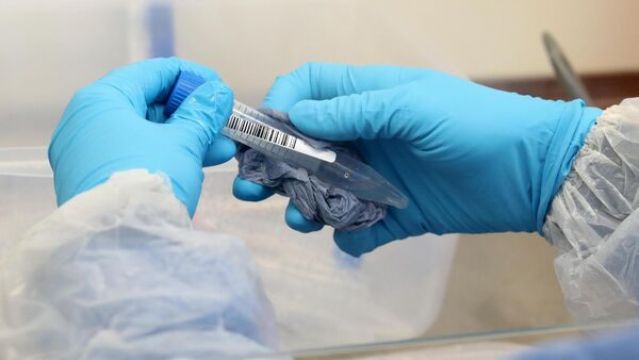A new research study is set to take place of people who have had Covid-19 in Ireland this year.
The study, which will be carried out at the newly established Cardiovascular Research Institute Dublin (CVRI), will examine and determine the long-term impact of the Covid-19 virus on people’s heart health.
The ‘Study of Heart Disease and Immunity After Covid-19 in Ireland’, also known as the SETANTA study, is set to be the first research study of its kind in Ireland.
Over the next six months, researchers will invite a sample of 100 patients who have recovered from the Covid-19 virus to participate in a cardiac screening to determine what proportion of those could have long-term changes in their heart muscle.
The research has been designed to help identify any significant or lingering side effects associated with the Covid-19 virus and to help compile data that can be used to adapt clinical practice to best manage the longer-term impacts of the virus.
Cardiovascular Research Institute Dublin (CVRI)
The study will be carried out by expert cardiology research teams at the CVRI — a new research institute at the Mater Private Hospital Dublin, established in collaboration with the RCSI (The Royal College of Surgeons in Ireland).
Led by the director of Cardiology at the Mater Private Hospital Dublin, Professor Robert Byrne, the CVRI combines the expertise of a world-class team of 30 cardiology consultants and specialist clinical researchers to provide a continuous source of innovation, knowledge and discovery in the field of cardiology.
The study is expected to be complete in 2022.
Over the next five years, it is the ambition of the CVRI to embark on further research in the key areas of patient-focused independent/ investigator-initiated studies, outcomes research and innovations in medical device therapy.
International research
Early international findings suggest that patients who have experienced a severe case of Covid-19 (a case that requires hospitalisation) are more likely to have cardiac complications or issues in the months following their contraction of the virus.
Findings from recent studies show that approximately 20-30 per cent of patients with severe Covid-19 will have cardiac complications including myocarditis, inflammation of the heart muscle.
These findings have also been supported by a JAMA Cardiology study, which was conducted among individuals who have recovered from the virus, most of whom were asymptomatic or had mild symptoms. This study found that:
- Two months post-recovery nearly 80 per cent had “persistent abnormalities”.
- 60 per cent had evidence of myocarditis (inflammation of the heart muscle).
- The findings indicated cardiac involvement (78 per cent) and ongoing myocardial inflammation (60 per cent) separate to pre-existing conditions, highlighting the need for greater awareness of the long-term cardiovascular consequences of Covid-19.
The SETANTA study aims to examine this issue from an Irish context to confirm whether these early findings are replicated among patients in Ireland.
It is hoped that this study will provide valuable Ireland-specific insight and data to allow cardiologists and other healthcare professionals to adapt clinical practice to manage the potential future impact of the outcomes.
Commenting, Professor Robert Byrne said: “As we gradually learn more and more about the impact of Covid-19 on a global scale, there is growing evidence to suggest that the threat of the virus is not just in the early stages — but that it can also cause prolonged complications in the months following recovery.
“Early research examining the lingering complications of Covid-19 are concerning, particularly from a cardiology perspective. Much of the research that has been conducted to date suggests a strong correlation between the virus and longer-term cardiology issues.
“However, these studies need to be replicated on a larger scale to reinforce findings and gain a more in-depth understanding the potential complications. The expert team at the CVRI Dublin are pleased to commence work on the SETANTA study to investigate this subject in an Irish context, contributing to the ongoing effort to comprehend the risks associated with the virus.”







